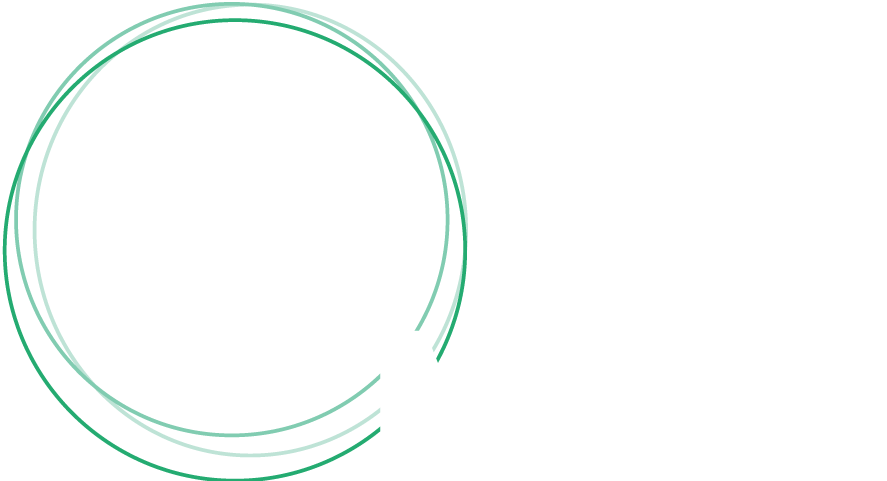The Regional Action Framework (RAF) is based on issues and priorities in the MaPP region and sub-regions. The RAF will be adaptive to changes that may become apparent during (or occur as a result of) implementation, or resulting from formal amendments to sub-regional marine plans.
Work plans will be developed to guide implementation of both the sub-regional marine plans and the RAF. Implementation agreements will be developed between the MaPP partners in each sub-region, and will define sub-regional governance structures. The bilateral governance structure used for MaPP plan development is anticipated to continue for sub-regional and regional activities. Stakeholder engagement will be an important component for the implementation of sub-regional marine plans and the RAF.
As part of the broader MaPP implementation financing initiative, MaPP is identifying funds from a variety of sources for the implementation of regional actions.
Refer to the Regional Action Framework for more information about regional actions on implementation.
Implementation Progress, 2016-2017
Priority implementation activities at a regional level in 2016-2017 focused on strengthening the model of collaborative oceans governance; increasing awareness, understanding, and adherence to management direction for spatial zones in the sub-regional marine plans; and, advancing stewardship and monitoring in the MaPP region through the collaborative development of regional strategies and frameworks.
Significant achievements towards implementing a number of priority regional action framework actions were:
- Collaborative governance arrangements for marine management were advanced through a number of activities, including discussions with federal government representatives. Ongoing governance discussions will encourage concerted and efficient implementation of MaPP actions related to, for example, the development of a network of marine protected areas for the Northern Shelf Bioregion and the advancement of marine response planning and preparedness on the North Pacific Coast. These actions will see more progress in subsequent implementation years when tripartite frameworks are fully established.
- Valuable collaborations were established and strengthened with internal partner programs and external organizations to advance the implementation of regional actions such as those related to ecosystem-based management (EBM) indicators monitoring and reporting. MaPP developed a list of regional ‘pilot’ EBM indicators, and drafted an EBM Indicators Monitoring and Reporting Strategy and accompanying indicator ‘briefs’, in collaboration with the Coastal Ocean Research Institute and the Regional Management System.
- MaPP continued efforts to build awareness and understanding of the marine plans and the regional action framework. For example, British Columbia’s MaPP team engaged provincial program area staff to identify opportunities for efficiently incorporating MaPP management direction, including spatial zones, into existing information management systems used internally to support decision-making processes.
- MaPP established an implementation phase Regional Marine Advisory Committee comprised of representatives from various marine sector interests and local governments, and held the first in-person meeting in March 2017.
- MaPP communicated widely to external audiences in 2016-2017 to showcase the valuable work completed during the planning phase, and to receive information and advice to help with implementation. Conferences and speaking engagements held locally, provincially, regionally and internationally were attended by B.C. and First Nations leadership and staff. Written communications materials and processes for both external and internal audiences also saw significant advancement in 2016-2017.
For details about progress on regional action framework implementation activities, download the Regional Action Framework Annual Report 2017.
Implementation Progress, 2017-2018
Priority implementation activities at a regional level in 2017-2018 focused on strengthening the model of collaborative oceans governance, monitoring ‘pilot’ ecosystem-based management indicators, and advancing the development of regional frameworks.
Significant achievements towards implementing several priority regional action framework actions were:
- Regularly convened established sub-committees, and successfully co-ordinated bi-lateral efforts of the sub-regional teams towards achieving regional objectives, encouraging a consistent, yet flexible, approach to regional implementation.
- MaPP partners from all sub-regions worked with collaborators, such as Coastal Oceans Research Institute, Regional Monitoring Strategy, and Coastal Stewardship Network, to make substantial progress on large-scale regional activities. For example, MaPP and collaborators completed preliminary data access and reports on a sub-set of regional ‘pilot’ ecosystem-based management indicators; completed a MaPP data and information management strategy; completed a geographic response planning guidance document and accompanying materials; completed a refined MaPP cumulative effects framework; advanced regional climate change work through completion of two foundational reports through a grant with the University of Victoria; and received agreement from MaPP partners on pursuing an integrated approach to indicator selection and monitoring that combines ecosystem-based management, cumulative effects and climate change needs into a single strategic framework and work plan approach.
- MaPP Secretariat continued engaging and building relationships with federal government representatives to advance critical, complex regional pieces of work [e.g., Marine Protected Area (MPA) network planning, marine response].
- Further developed MaPP partner processes for tracking the consistency of tenure applications, referral responses, and decisions with the management recommendations in the MaPP plans, and, at a B.C. partner level, continued meaningful training and outreach with provincial staff to increase awareness and consideration of MaPP plans in the review and adjudication of tenure applications.
- MaPP continued to engage with the general public, stakeholders and partners through the distribution of a newsletter and on Facebook.
- Additional funding was secured to help build capacity around MPA network planning, particularly with stakeholder engagement in the process.
For details about progress on Regional Action Plan implementation activities, see the Regional Action Plan Annual Report 2018.
Implementation Progress, 2018-2019
RAF actions and activities for priority implementation under each outcome were identified early in 2018-19 by the Regional Projects Co-ordinator and the Marine Implementation Technical Team (MITT), during regional annual work planning and budgeting. Implementation activities at a regional level in 2018-19 focused on strengthening MaPP’s unique model of collaborative oceans governance; and advancing the linked priorities of EBM indicators, cumulative effects, and climate change assessment, monitoring, and reporting, through advancing the development and implementation of regional frameworks and strategies. Data management was also a focus. Activities in 2018-19 built upon important foundational work of prior years. Key activities and associated RAF actions advanced in 2018-19 are described below.
As in 2016-17 and 2017-18, the MaPP regional projects co-ordinator and other regional representatives regularly convened established sub-committees, and successfully co-ordinated bilateral efforts of the sub-regional teams, towards achieving regional objectives. This co-ordination was intended to foster a consistent yet flexible approach to regional implementation (Governance Action 2.2a, Implementation Action 6.2a). In terms of new sub-committees, in 2018-19, the MITT approved the establishment of a ‘policy and planning working group’ consisting of EBM sub-committee members and internal subject matter experts to advance policy and planning related to wild marine aquatic plant harvest, to be undertaken starting in 2019-20 (Governance Action 2.2a, Implementation Action 6.2a).
MaPP Partners continued actively participating in important initiatives with the Canadian federal government to advance critical, complex regional pieces of work, such as Marine Protected Area Network (MPAn) planning, and regional marine response planning (Governance Action 2.2a, Implementation Actions 6.2a and 6.2b, Marine Pollution Actions 3.4b and 3.4c, Marine Zoning Action 5.2c). MaPP Partners and the federal government made significant headway on scenario planning, reaching technical agreement on the draft MPA network for the Northern Shelf Bioregion (NSB) (Marine Zoning Action 5.2c). With respect to marine response planning, First Nations MaPP Partners advanced under the Reconciliation Framework Agreement the development of a regional response plan (and associated sub-regional annexes), in collaboration with numerous federal government departments (Marine Pollution Actions 3.4b and 3.4c).
The MaPP Partners further encouraged consistency with MaPP spatial zones by developing a MaPP Zoning Outreach Strategy (Marine Zoning Action 5.2b) and – at a B.C. partner level – continuing meaningful training and outreach with regional provincial staff to maintain awareness of the MaPP spatial zones and consistency of land use authorizations with MaPP spatial recommendations (Marine Zoning Actions 5.2a and 5.2b).
After reaching agreement late in 2017-18 to advance an Integrated EBM Program (i.e., a Pprogram that addresses EBM indicator monitoring and reporting, cumulative effects assessment and monitoring, and climate change assessment and monitoring under a single strategic framework and workplan), MaPP Partners completed a number of key activities under this program. These activities included: 1) the initiation of a Regional Kelp Monitoring Program (RKMP) piloting ‘kelp’ as a regional value (Climate Change Action 3.1a; Cumulative Effects Actions 3.2a, 3.2b, and 3.2c; EBM Monitoring and Indicators Actions 3.5a, 3.5c, 3.5e and 3.5f); 2) the completion of metadata standards and a data inventory; and 3) the initiation of a MaPP metadata catalogue (EBM Monitoring and Indicators Actions 3.5b, 3.5d and 3.5f).
MaPP continued regional communication activities in 2018-19, engaging with stakeholders, collaborators, and the general public through the distribution of six e-newsletters (regional and sub-regional stories), regular postings on social media (Facebook), and through participating and presenting in local, national and international conferences (Implementation Action 6.2b).
For details about progress on Regional Action Plan implementation activities, see the Regional Action Plan Annual Report 2019.



